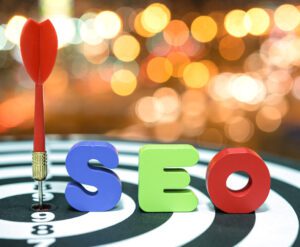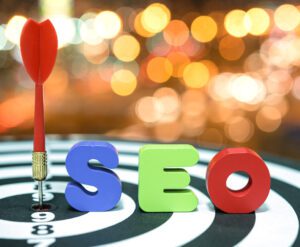The rise of artificial intelligence, machine learning, and other advanced technologies has made marketing more data-driven than ever before. Nowadays, marketers can measure almost every aspect of their audience and use that data to target them precisely. However, this abundance of data also means that there is more to analyze. To attract new customers, businesses must first understand how they make decisions. When someone learns about your product or service for the first time, they go through a complex thought process that ultimately determines whether or not they will work with you. Understanding this psychology will make it easier for you to attract new clients.
A marketer’s job is to motivate consumers to accept and use a product or service, which requires influencing their decision-making process. It is also essential for marketers to understand psychology and to study how people’s thinking may be biased, known as cognitive bias. At the core of this transformation lies a deep understanding of consumer decision-making psychology, allowing AI-powered marketing to cater to individual preferences and behaviors. Let’s delve into the intricacies of this dynamic relationship between psychology and AI in marketing.
Factors Influencing Consumer Decision Making
Various factors influence consumer decision-making, including personal preferences and external influences like marketing and social pressure. Individual factors such as age, gender, income, and lifestyle play a role, as do cultural and social factors like family values, peer pressure, and societal trends. Marketing efforts, such as advertising and promotions, also impact consumer choices. By understanding these factors, businesses can develop effective marketing strategies to increase customer satisfaction and loyalty, which drives business success.
Role of Emotions in Consumer Decision Making
Emotions play a significant role in making decisions when buying things. How a person feels about a product or service can significantly impact whether they decide to buy it. This is often more important than things like how much it costs or what features it has. Suppose someone feels happy, excited, or trusting towards a brand or product. In that case, they are more likely to become loyal customers and keep buying from that brand. However, they may stop buying from that brand if they are angry or disappointed.
For businesses, it’s imperative to understand how emotions affect consumers’ decisions. This helps them create marketing strategies to connect with their target audience and make them more likely to buy their products or services.
The Significance of Human Behaviour and Decision-Making
Understanding human behavior and decision-making is crucial in various areas, such as psychology, marketing, and business. People’s behavior and choices impact how they engage with products, services, and others. By studying human behavior, businesses can create products and services that align with their needs and preferences.
Furthermore, comprehending the decision-making process can assist in guiding people’s choices by offering them information and incentives that motivate them to make specific decisions. Hence, human behavior and decision-making are essential in many aspects of our lives.
The Power of Advertising and Marketing
Advertising and marketing are essential in influencing how consumers make decisions. Businesses can attract and convince potential customers to buy their products or services by creating effective advertising campaigns and marketing strategies. Advertising is powerful because it can make people aware of a brand, build trust and credibility, and communicate what makes a product or service unique. On the other hand, marketing focuses on understanding the needs and preferences of the target audience and creating messages that resonate with them.
By using advertising and marketing effectively, businesses can reach and connect with their target audience and increase their sales and revenue.
Cognitive Biases and Decision-Making
AI is designed to tap into cognitive biases that influence decision-making. For instance, the mere exposure effect suggests that people tend to develop a preference for things merely because they are familiar with them. AI-powered marketing leverages this bias by presenting consumers with standard products or content, increasing the likelihood of engagement.
Cognitive biases are ways in which our thinking often strays from logical reasoning. Even though we may want to make decisions based on objective analysis and unbiased judgment, unconscious biases often affect our choices.
Understanding Customer Needs and Preferences
Understanding customer needs and preferences is essential for any business to thrive. By knowing what customers want, companies can customize their products or services to meet those needs, improving customer satisfaction and loyalty. This understanding also helps businesses recognize market trends and consumer behavior, making informed decisions about marketing strategies and product development.
Collecting customer feedback and data through surveys, focus groups, and social media analytics can help businesses better understand their customers, increasing sales and revenue.
The Importance of Customer Feedback and Engagement
Customer feedback and engagement play a crucial role in consumers’ choices. With the rise of the internet and social media, it has become much easier for customers to share their thoughts and experiences with others. Businesses must actively seek feedback and interact with customers to provide the best possible experience. By paying attention to what customers are saying and addressing any problems quickly, businesses can build trust and loyalty with their customers. This can lead to repeat business, positive reviews, and increased sales.
Developing Innovative Products and Services
Consumer decision-making is vital in creating new and improved products and services. Companies need to understand what consumers are looking for to meet their demands and provide value. By analyzing consumer behavior and preferences, companies can identify opportunities in the market and develop products that stand out from their competitors. Additionally, companies can continuously innovate and improve their products by listening to consumer feedback and adapting to their changing needs. Ultimately, putting the consumer at the center of product development can increase customer satisfaction and loyalty, which drives business success.
Ethical Considerations and Consumer Trust
While AI-powered marketing holds tremendous potential, it also raises ethical considerations. The responsible use of consumer data and the transparent implementation of AI algorithms are crucial to maintaining consumer trust. Psychological principles related to transparency, authenticity, and ethical behavior underscore the importance of ethical considerations in AI marketing.
Transparency:
Consumers value transparency in how their data is collected and utilized. AI algorithms should operate transparently, ensuring that users understand the basis of recommendations and the use of their personal information.
Authenticity:
AI should enhance authenticity rather than compromise it. Authentic marketing messages resonate with consumers on a deeper level, building trust and fostering long-term relationships.
Ethical Behavior:
The ethical use of AI aligns with psychological principles related to reciprocity and fairness. Consumers are likelier to engage with brands that prioritize ethical behavior, creating a positive brand image.
How to Understand Consumer Psychology?
Understanding consumer psychology involves studying the thoughts and actions of individuals that impact their choices when buying products or services. This includes analyzing consumer emotions, attitudes, beliefs, motivations, and perceptions of value, risk, and satisfaction. Conducting market research surveys, analyzing customer feedback, and tracking consumer behavior and trends are all important steps to better understanding consumer psychology.
With this information, businesses can better tailor their marketing strategies and offerings to meet the needs and desires of their target audience, leading to increased sales and customer loyalty.
The Psychological Influence on the Consumer Behaviour Decision Process
The impact of psychology on consumers’ decision-making process is significant and complex. Many factors play a role in this, including personal experiences, motives, emotions, attitudes, and beliefs. These factors delve into the intricate workings of the human mind, shedding light on why we choose one option over another. Businesses must understand how these factors influence consumer behavior to effectively market their products and services.
Marketers employ various techniques to influence consumers, such as appealing to their emotions, utilizing customer reviews and social proof, and creating a sense of urgency. By understanding the psychological factors influencing consumer behavior, businesses can develop effective marketing strategies to increase sales and customer loyalty.
Businesses must consider the psychological factors that impact consumer behavior and adjust their marketing strategies accordingly. Let’s explore some key psychological influencers:
Perception: The interpretation of the world around us significantly shapes our decisions. Marketers capitalize on visual, auditory, and sensory stimuli to create impressions that influence customers’ perceptions of their products and brands.
Motivation: The driving force behind the people’s actions, inspiration stems from their needs and desires. Understanding what motivates individuals helps marketers tailor products or services to fulfill specific requirements, aligning with consumers’ intrinsic motivations.
Learning: As people accumulate knowledge and experiences, their decision-making processes evolve. Marketers leverage consumer learning by providing information, creating associations, and establishing brand familiarity to influence choices positively.
Attitudes: Attitudes are formed through beliefs, and evaluations shape the preferences. Marketers strive to understand and influence these attitudes, creating campaigns that resonate with consumers and align with their values.
Social Influence: The people around us impact our decisions. From family and friends to influencers, social circles contribute to our choices. Marketers recognize the power of social influence, utilizing social proof and endorsements to sway consumer decisions.
Cognitive Biases: Human brains often rely on mental shortcuts or biases when making decisions. Marketers may exploit or counteract these biases to guide consumers toward a particular choice, understanding the impact of cognitive shortcuts on decision-making.
Emotional Influences: Emotions play a significant role in decision-making. Brands aim to create emotional connections with consumers, associating positive feelings with their products or services to enhance brand loyalty.
Cognitive Bias And The Power Of Artificial Intelligence
Cognitive biases are consistent ways people’s thinking deviates from logical reasoning. Even though they may want to make decisions based on objective analysis and without bias, the truth is that unconscious biases often influence their choices. When combined with cognitive biases, AI can help marketers analyze creative content and improve marketing performance, leading to higher sales.
These cognitive biases influence the decisions consumers make and affect how people perceive and react to information, and they can significantly impact consumer behavior. Marketers probably use these biases to influence consumers, whether they know it or not. Additionally, when marketers start using advanced technology to generate artificial intelligence (AI) and machine learning, they have a unique opportunity to exploit these cognitive biases further to shape consumer behavior more sophisticatedly.
Here’s a closer look at several cognitive biases currently being used in marketing, as well as potential ways marketers can use AI to leverage the power of these cognitive biases to generate better sales outcomes.
Scarcity effect:
The scarcity effect is a psychological phenomenon where people tend to place a higher value on things that are limited in quantity. Marketers often take advantage of this by using tactics such as creating a sense of urgency with phrases like “Act now—supplies are limited!” People will perceive something as more valuable than something readily available by making it seem scarce. With generative AI, marketers can create time-limited offers or a similar sense of scarcity to appeal to this psychological tendency and encourage people to take action quickly.
Empathy gap:
The empathy gap refers to the tendency for people to underestimate the role of emotions in their decision-making process. While people like to believe they make rational choices, the reality is that emotions often drive consumer behavior. This is why successful ad campaigns often use both cognitive and emotional appeals to establish a connection with consumers and drive sales.
Marketers can take advantage of this bias and influence consumer decision-making, especially with the help of AI technology. AI tools such as Google’s DeepDream program can generate dream-like images, which can help designers create unique designs that appeal to consumers’ emotions. This allows for more responsible and responsive advertising that can effectively connect with consumers emotionally.
Humor Effect:
People tend to remember and recall humorous events more easily. Marketers have taken advantage of this by incorporating humor into their campaigns. For example, in the insurance industry, ads featuring popular recurring characters like Mayhem, Flo, Emu and Doug have successfully used humor to engage audiences and make a lasting impression. Although AI doesn’t have a sense of humor, marketers can use AI to generate ideas and identify relatable and grounded themes, allowing consumers to connect with the message on a personal level.
Loss Aversion:
Human beings tend to perceive losses as more significant than gains. Marketers in industries such as home improvement services often use a strategy that emphasizes the potential negative consequences of not taking action. AI can help identify what sense of loss a consumer will feel if they do not purchase the product, allowing marketers to utilize that emotion in ads.
Distinction Bias:
Distinction Bias refers to the tendency for people to notice and emphasize differences between two similar products when they are compared side by side. Marketers can use AI to highlight these differences and effectively communicate the advantages of their offerings to influence consumer perceptions and purchasing decisions.
Anchoring:
Anchoring is a cognitive bias where individuals place too much importance on a specific piece of information when making decisions. Marketers can use AI to take advantage of this bias by identifying a higher price point or reference point (the anchor), which makes discounted prices appear more appealing to consumers.
Future Trends
A. Emerging Technologies in AI and Marketing
As technology advances, AI is poised to revolutionize the marketing landscape. Several emerging technologies are expected to shape the future of AI-powered marketing:
Augmented Reality (AR) and Virtual Reality (VR): Integrating AR and VR into marketing strategies offers immersive and interactive experiences for consumers. From virtual product try-ons to augmented reality advertisements, these technologies enhance engagement and provide novel ways for consumers to interact with brands.
Chatbots and Conversational AI: Chatbots evolve beyond basic customer service. Future chatbots will employ natural language processing and deep learning to engage in more sophisticated and personalized conversations, enhancing customer interactions and influencing purchasing decisions.
Voice Search Optimization: With the rise of voice-activated devices, optimizing content for voice search is becoming crucial. AI algorithms will play a pivotal role in understanding and responding to natural language queries, reshaping SEO strategies and influencing how consumers discover and choose products.
Blockchain in Marketing: Blockchain technology offers transparency and security in transactions. In marketing, it can be utilized to enhance trust in advertising, combat fraud, and ensure the authenticity of products, thereby influencing consumer decisions based on verifiable information.
B. Potential Advancements in Understanding and Influencing Consumer Decisions
The future holds exciting possibilities for marketers seeking more profound insights into consumer behavior and more effective ways to influence decisions:
Advanced Predictive Analytics: AI algorithms will continue to evolve, enabling marketers to predict consumer behavior more accurately. Predictive analytics will help businesses anticipate trends, personalize marketing strategies, and proactively meet consumer needs.
Neuromarketing and Brain-Computer Interfaces: Advances in neuroscience and technology may lead to the development of more sophisticated neuromarketing techniques. Brain-computer interfaces could provide direct insights into consumer reactions, allowing marketers to tailor campaigns based on neurological responses.
Ethical AI and Consumer Trust: With growing concerns about privacy and data security, the future will likely see the development of ethical AI frameworks. Marketers must prioritize transparency, consent, and responsible AI use to build and maintain consumer trust.
Personalization through Emotional AI: AI will delve deeper into understanding and responding to human emotions. Emotional AI can tailor emotionally resonating marketing messages, fostering stronger connections between brands and consumers.
In conclusion, the future of AI in marketing holds tremendous potential. The integration of emerging technologies and advancements in understanding consumer behavior will redefine how businesses engage with their audience and pave the way for more personalized, ethical, and emotionally resonant marketing strategies.








